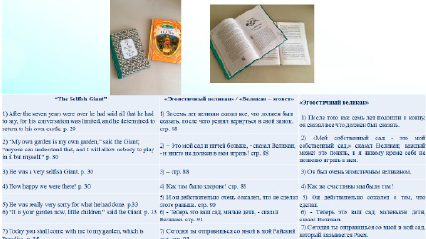Essential English Grammar
페이지 정보
작성자 Jayne Perrett 작성일25-08-03 18:44본문

Tense is a fundamental concept in English grammar that refers to the way in which verbs are used to express time. There are four main forms in English: the future tense, the future tense, and the present tense. For английский язык для детей статьи example, 'I will go to the store' is in the past tense, 'I goes to the store' is in the past tense, and 'I will to the store' is in the future tense.
Tone as the name suggests, deals with the tone conveyed by a sentence or a statement. There are five main moods in English: the subjunctive mood, the indicative mood, and the subjunctive mood. {Indicative|mood is used to make statements or assertions, imperative mood is used to issue commands or orders, and the subjunctive mood is used to express {doubt|uncertainty|possibility}.
{Subject-verb agreement|Verb conjugation|Sentence structure} is a {crucial|vital|important} concept in English grammar as it deals with the relationship between the subject of a sentence and the verb. A subject is a {noun|pronoun|phrase} that performs an action, and the verb should {agree|match|match up} in {number|person|both number and person} with the subject. For example, 'The dog {sleeps|sleeps|sleepeth}' is {grammatically correct|incorrect|acceptable} because 'dog' is a singular noun, and 'sleeps' is a verb in the singular form. However, 'The {cats|dogs|animals} {sleeps|sleep|sleepeth}' is {incorrect|acceptable|grammatically correct} as 'cats' is a plural noun, and 'sleeps' is a singular verb.
{Clarity|Precision|Accuracy} in English writing and speaking largely depends on the usage of {clauses|phrases|sentences}. An {independent|dependent|independent} clause is a clause that can {stand|exist} on its own and have a subject and a verb. On the other hand, a {dependent|independent|dependent} clause is a clause that cannot {stand|exist} on its own and relies on an {independent|dependent|independent} clause to make sense. A phrase, however, is a group of words that functions as a single unit, often {without|with} a subject or a verb.
{Prepositions|Conjunctions|Modals} are some of the {lesser-known|common|essential} grammar terms that are {essential|required|crucial} to English communication. Prepositions such as 'in,' 'on,' and 'at' help to establish the relationship between a {noun|pronoun|phrase} and other words in the sentence. Conjunctions like 'and' and 'but' are used to {join|connect|link} words, phrases, or clauses together, while modals such as 'can,' 'will,' and 'should' are used to {express|indicate|show} {possibility|probability|obligation}.
In {addition|additionally|in addition} to understanding these grammar terms, it is {equally|also|just as important} to practice using them in {context|situation|application}. One of the {best|most effective|best} ways to improve your English skills is to read and listen to English media as {often|regularly|frequently} as possible. Reading English books, watching English movies, and listening to English music will {not only|also|in addition} improve your {vocabulary|intelligence|linguistic skills} but also help you to become {more familiar|more knowledgeable|better} with these essential grammar terms.
In {conclusion|summary|final thoughts}, mastering the essential grammar terms is crucial for effective English communication. By understanding the {concepts|terms|principles} of {tense|mood|subject-verb agreement}, you will be able to express yourself {more clearly|more accurately|more articulately}. Remember that {practice|application|implementation} is key, so make sure to apply these grammar terms in your {daily|everyday|normal} interactions to {see|notice|achieve} {significant|substantial|notable} improvements in your English skills.
- 이전글Generate Income With These Top Tips! 25.08.03
- 다음글Exciting u31 Games at Leading Thailand Casino Site 25.08.03
댓글목록
등록된 댓글이 없습니다.


